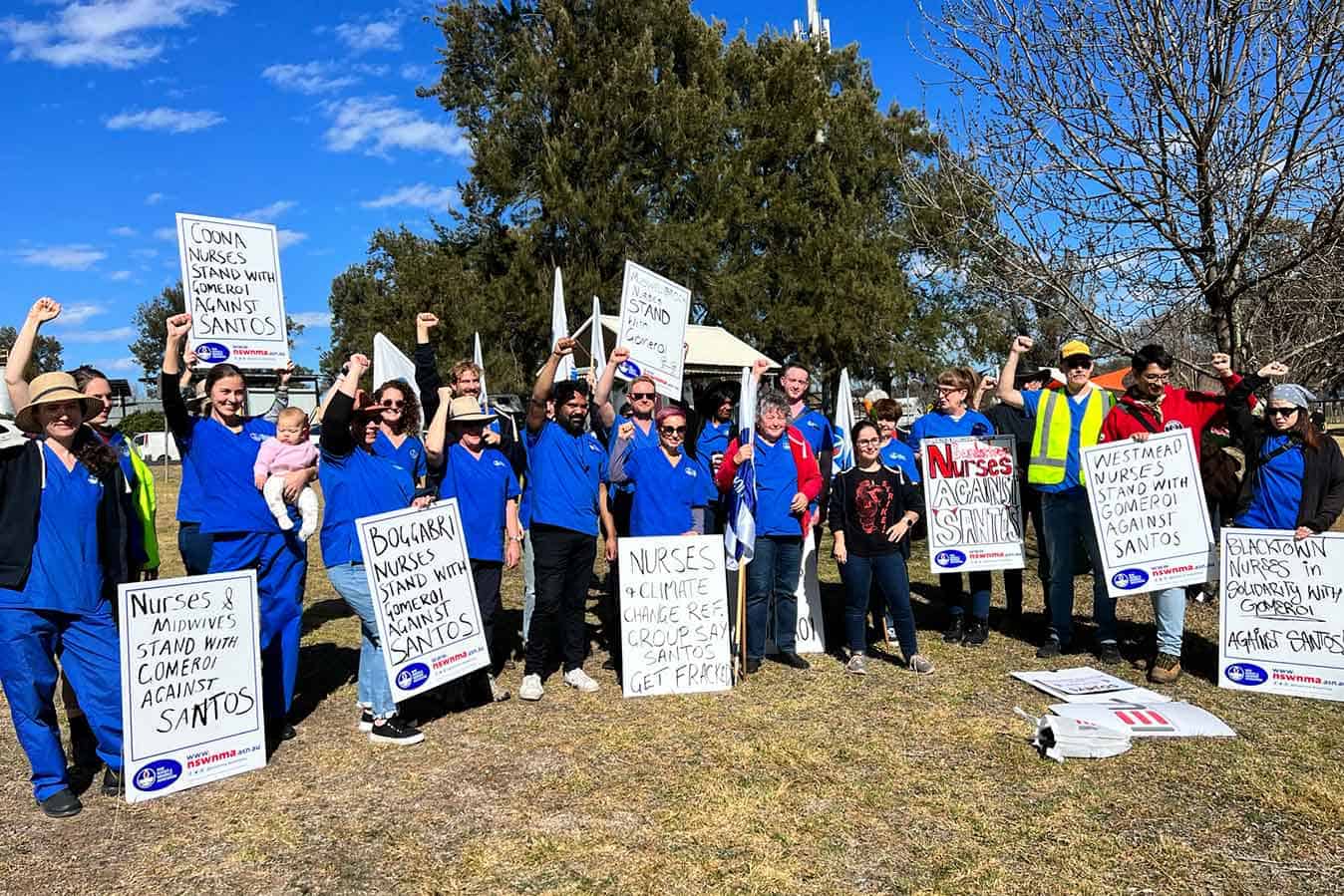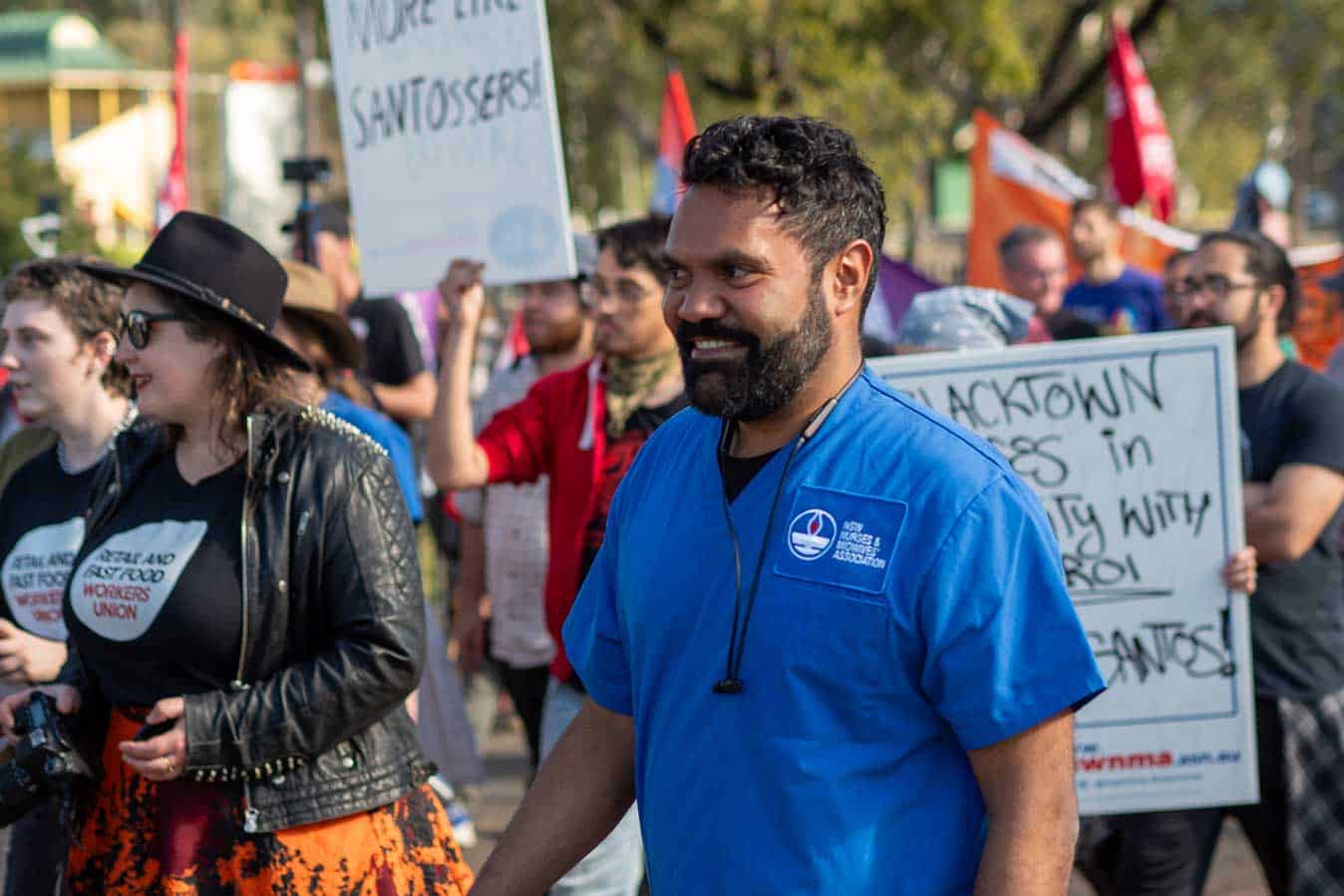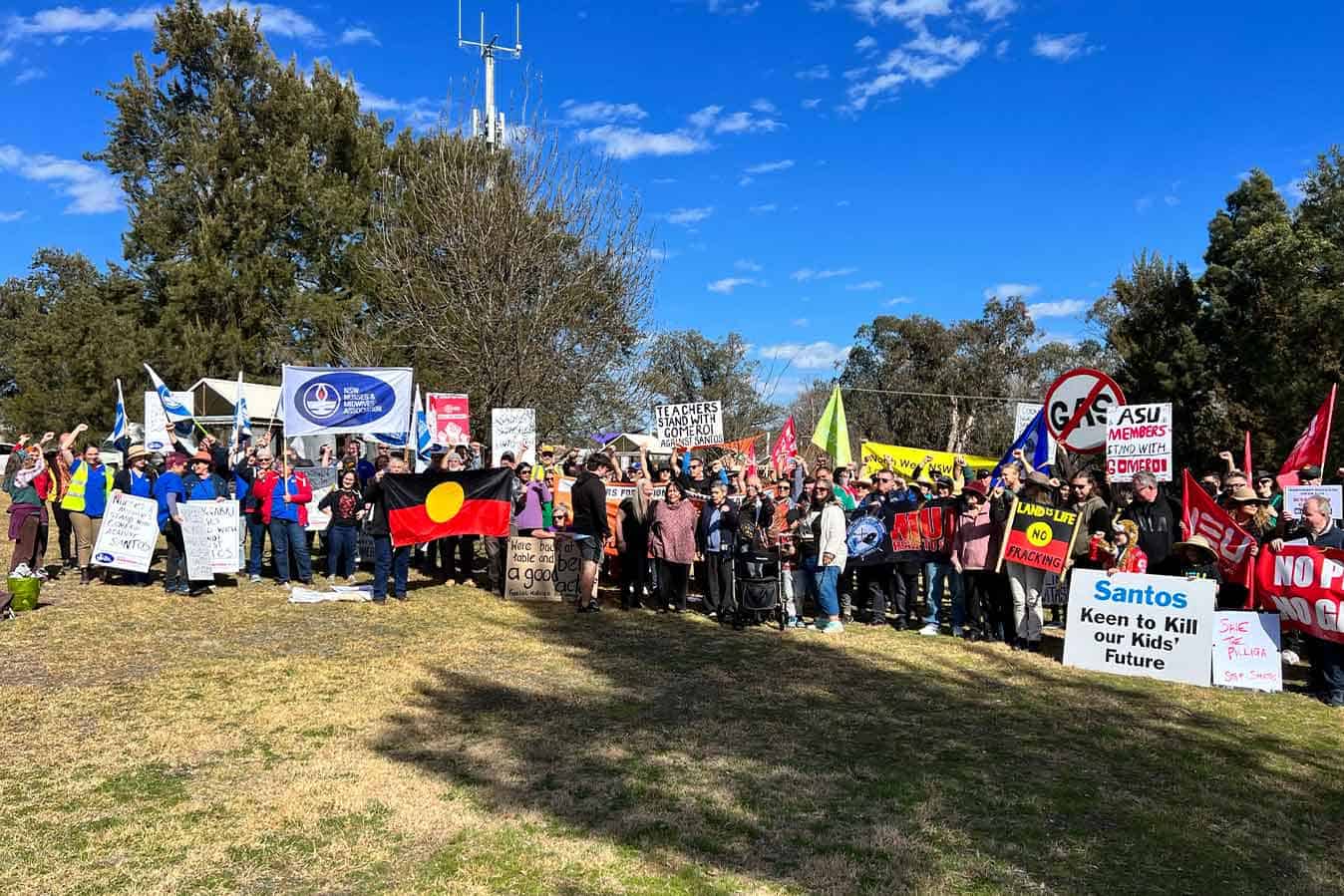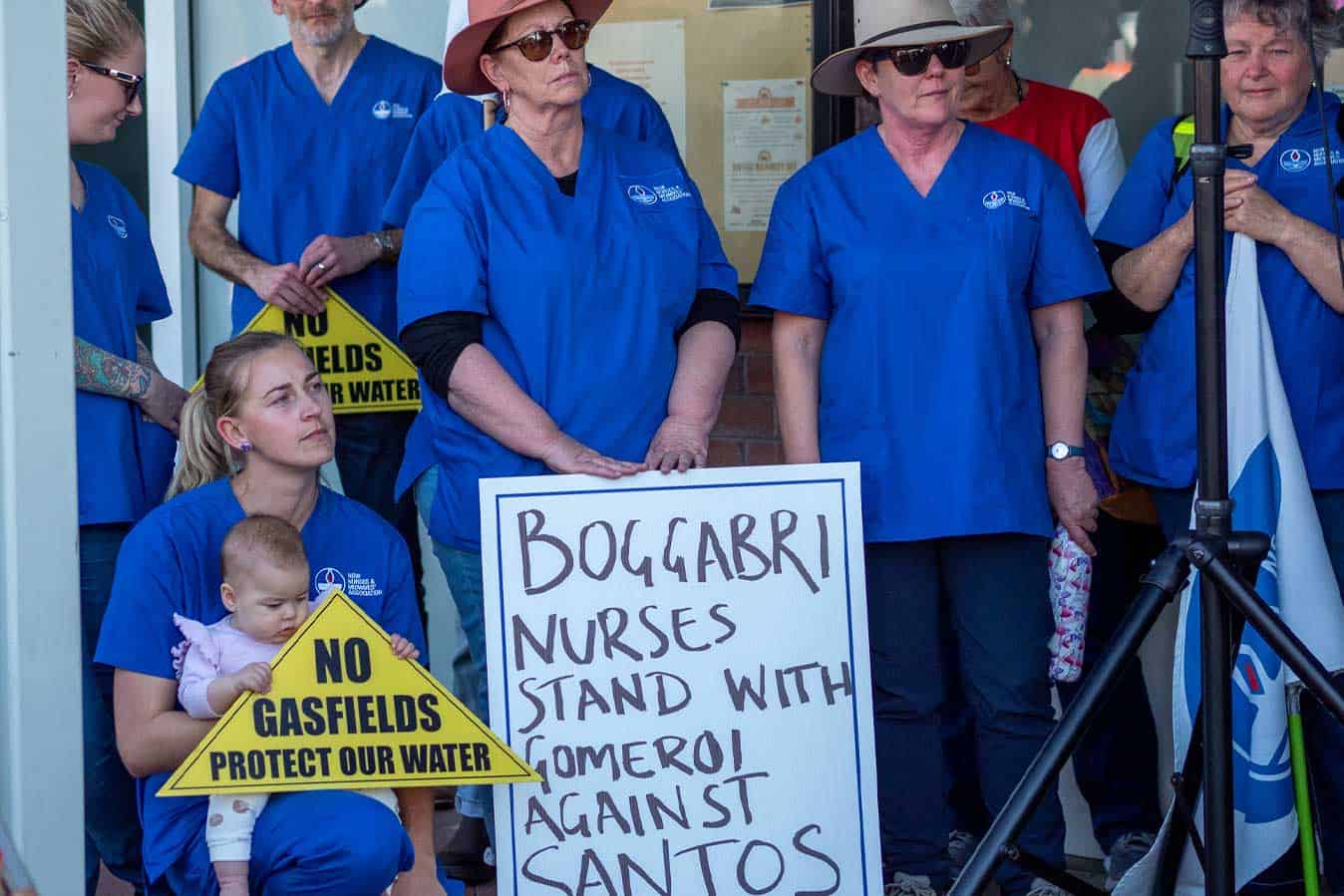For several years, Gomeroi people in Coonabarabran and Narrabri have been fighting energy giant Santos’ proposed Narrabri Gas Project, which would see 850 coal seam gas (CSG) wells drilled in the iconic Pilliga Forest to extract gas.
Known as fracking, the process involves drilling into the earth and directing a high-pressure mix of water, sand and chemicals, to release natural gas from the coal. The practice, however, remains highly controversial across the globe due to its far-reaching environmental impacts.
With a Federal Court hearing beginning earlier this month to consider a Gomeroi appeal against a decision of the Native Title Tribunal (NTT) last December giving Santos the green light to proceed with the project, dozens of NSW Nurses and Midwives’ Association (NSWNMA) members, along with fellow trade unionists, rallied in and around the Pilliga on 12 August to oppose the project.

NSWNMA member Deanna Hayes, a Clinical Nurse Specialist/theatre nurse at St George Private Hospital, made the 6-hour trek up with a crew of nurses and midwives to take part in the protests.
A climate change action advocate, Deanna leads a Green Team in her workplace, making improvements to sustainability in healthcare through areas such as recycling, and is a part of the branch’s Climate Change Action Reference Group, which meets regularly to tackle emerging climate issues.
One of the group’s members, a Gomeroi person from the Pilliga area, shed light on the ‘David and Goliath’ battle to stop Santos’ plans and its potential destructive impacts on climate, water, eco systems and cultural heritage and practices, encouraging the NSWNMA to stand in solidarity.
The protests included talks from local landholders, who highlighted a raft of issues the gas wells would likely cause, including potential contamination of the Great Artesian Basin and effects on the local agricultural sector. Worryingly, in June this year, in an example of problems similar projects have caused, it was publicly revealed that decommissioned gas wells from a Santos project off the coast of Western Australia have been leaking from the seabed for a decade.
Deanna said she would continue to lend her support in the fight to stop the project.
“I’m extremely concerned about what’s happening with climate, so for me to feel like I’m actually taking some action and standing with other unions and the local Gomeroi people from around the area, it just feels good to be able to give them support because they’ve been fighting this project for years,” Deanna told the ANMJ.
While the Narrabri Gas Project could cause untold environmental impacts, it would also see loss of important country held sacred by the area’s Gomeroi people, with large areas of the forest needing to be cleared, or fragmented, to make way for the wells.

In a statement last year following gaining approval for the project, Santos claimed it would “continue to engage constructively with the Gomeroi people and work closely with them to ensure their heritage is protected and they benefit from the project development in a range of ways, including through training and employment, and involvement in all aspects of their cultural heritage protection and management”.
Soaking up the idyllic setting at the protests, Deanna says she was able to vividly picture why the project should not go ahead.
“You really kind of feel it more because you’re seeing the nature, so imaging in your mind how different it would look if they went ahead with all the gas wells,” she said.
“They’ve already got exploratory ones there but they’re planning to put in 850 wells. You do feel it standing in the bush, looking at what’s around you, and thinking how different it would be if it all went ahead.”
The NSWNMA, representing more than 76,000 members, and fellow trade unions in NSW, remain committed to supporting the Gomeroi people in their fight against the Narrabri Gas Project.

Deanna says it is just one of many climate change action causes that nurses and midwives need to get behind.
“Climate and health are so closely linked and related, whether it’s down to the actual physical effects, as we’ve just had a couple of the hottest months ever on record, and it’s going to keep getting hotter and hotter.
“People are going to be affected by the heat but not only that, extreme weather’s going to keep getting worse as well. Therefore, we’re going to be physically affected, whether it’s floods, or fires, all these effects that we’re going to feel in Australia.
“There’s psychological effects as well, there’s heaps of things that affect our health due to the changing climate, so we have to try and reduce these effects getting worse and worse, and we’re not going to be able to do that if we keep opening up more gas wells.”








